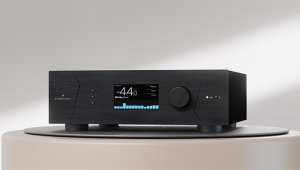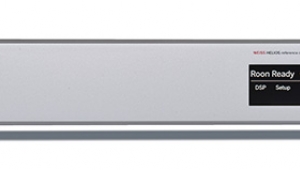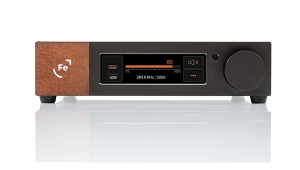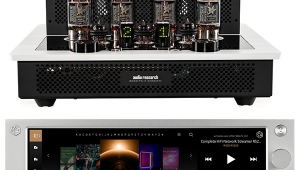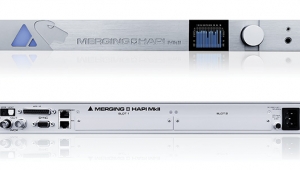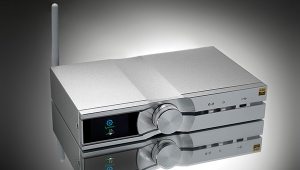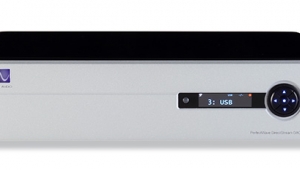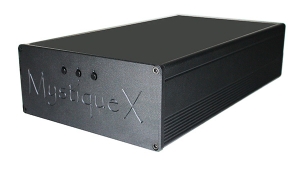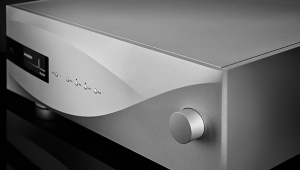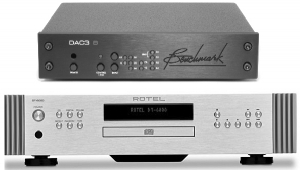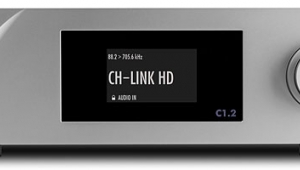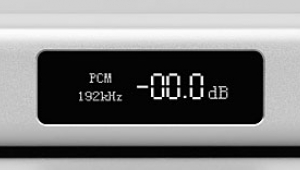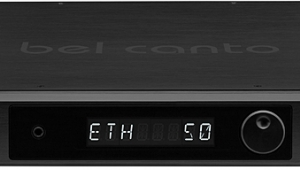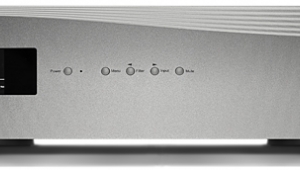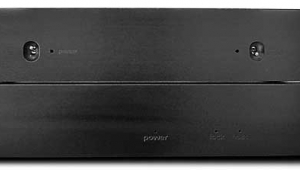| Columns Retired Columns & Blogs |
MSB Platinum Link Plus D/A processor Page 3
Was the sound worse without upsampling and/or interpolation? Only by a very little, and this was revealed only by a slight loss of the MSB's smooth frequency and spatial integrity. MSB has done their homework in adapting their algorithms to interact optimally with each other, and that's the best we can ask of a design team. In fact, one might question the necessity of having these as options and not as fixed settings.
I found the Phase Invert switch and the filter-slope adjustments useful. The need for the former is, despite much debate, still controversial among many audiophiles. Nonetheless, digital phase inversion is as clean as reversing speaker leads, and a lot easier. Some older, nastier brass sounds were different with inversion, and while I can't know what they really sound like live, inverting phase made them easier to listen to.
The filter slope, on the other hand, was probably the only front-panel switch that made an almost universally useful difference. Switching in the brick-wall filter had two effects. First, it seemed to reduce the vague low-level indeterminacy to comfortable levels; second, it pulled all the primary voices and instruments just a bit forward compared to the gentler slope setting. Most revealing of this was the Orlando Consort's The Call of the Phoenix (Harmonia Mundi HMU 907297), in which there are four male voices in the foreground, and richly resonant spaces to the sides and back that are stimulated by the voices but return to us as independent sources and, of course, interact with the voices. With the gentle slope filter, the echoes seemed detached from the voices, creating a larger space that somehow seemed separate from the singers. When I switched in the brick-wall filter, the voices edged just a little bit forward and gained a bit of crispness, but melded seamlessly with the ambience. It was an altogether more engaging and involving presentation.
Not every recording benefited similarly. The Berlioz on LSO Live, which has no instruments miked as closely as the Orlando Consort's voices, showed a little highlighting with the brick-wall filter; I preferred the more spacious presentation of the gentle slope filter.
Final Variations
During the Platinum Link Plus's visit, several other DACs came and went but, unfortunately, no two were comparable in price. Two sonic features distinguished the Link Plus from the significantly less expensive Music Fidelity A324: a more rounded, pearly, and slightly forward midrange, which made almost all recordings more lively; and the filter-slope option, which let me tune the Link Plus to the recording. The comparisons were brief—the A324 developed a bad case of treble rolloff—but before that happened and the Musical Fidelity had to be returned, there seemed to be more treble energy coming from the MF, more midrange detail from the MSB.
Comparisons of the Platinum Link Plus with the Mark Levinson No.360S and the Weiss Medea always favored those more expensive boxes. Both seemed to have a much greater signal/noise ratio in the treble range, which served to separate voices in the space both from each other and from the space itself. And though neither the No.360S nor the Medea had much in the way of overt sampling and filtering options, neither seemed to need any. Of course, for their higher prices the Weiss also gives you a sledgehammer of an output driver, and the No.360S flexible control and programming facilities that the Platinum Link Plus lacks.
Conclusions
If it seems that I've been damning the MSB Platinum Link Plus with faint praise, that was not my intent. The Platinum Plus is a superbly satisfying DAC that improved the sound of every player I tried with it. The exception was the Meridian Reference 800 DVD-Audio player, but even then, the MSB provided an alternative but not inferior sound. The Platinum Link Plus distinguished itself from the less-espensive, similarly priced MSB Link III and the Musical Fidelity A324 by its more open and transparent midrange, supported by its full, secure bass. The Platinum Plus's treble, which is somewhat manipulable with the filter and (perhaps) some other settings, was smooth and forgiving, and probably its most defining characteristic.
At $3995, the MSB Platinum Link Plus is not inexpensive, but it is a good value if you enjoy its generous sound and value its flexibility and options.
- Log in or register to post comments
